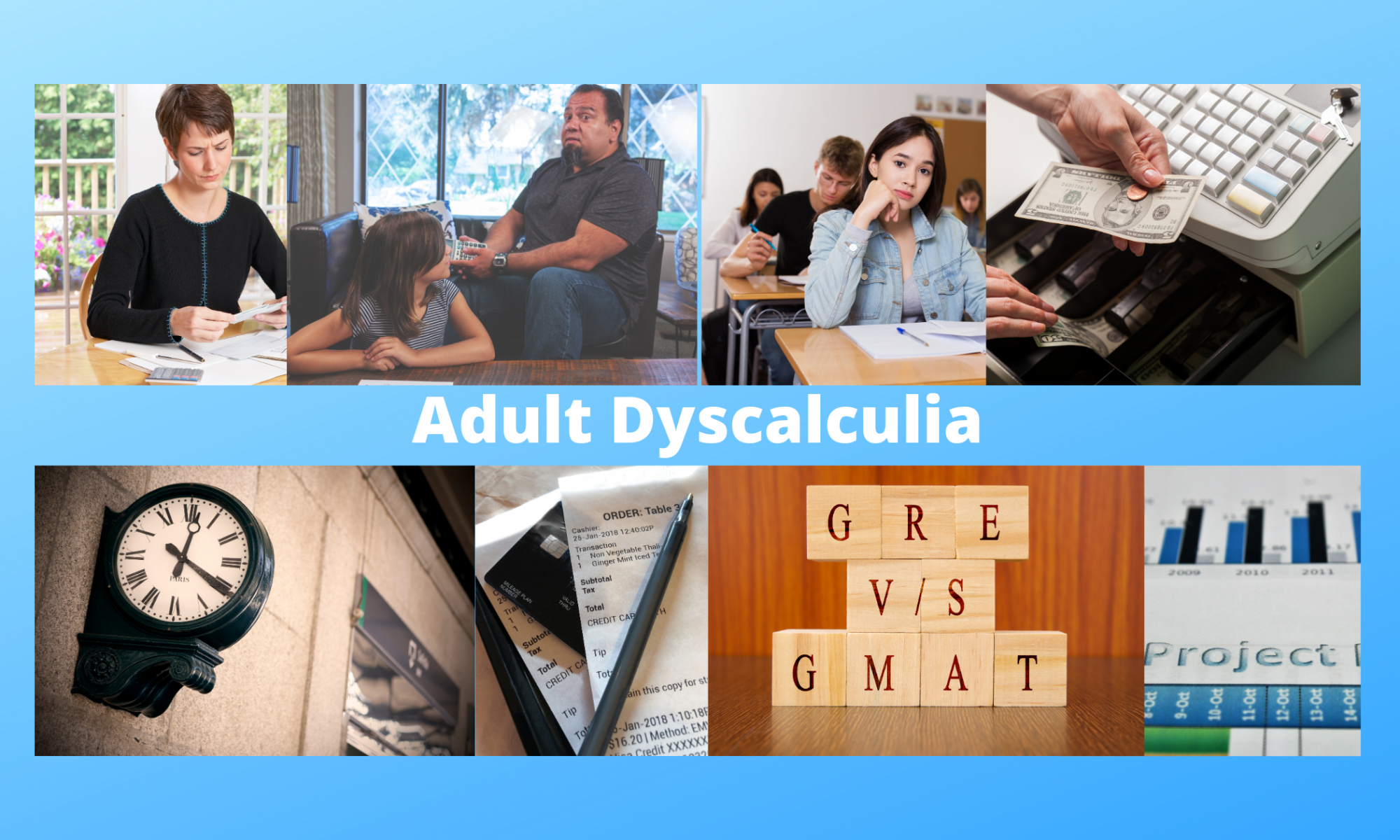How often do you hear adults say: “I always struggled with math in school” or even worse “I am just not a math person” basically accepting that it will always be hard for somebody to do things such as keeping a checkbook and other important math related activities?
Were you one of those kids struggling and giving up on math? You could well have dyscalculia or Math LD yourself.
What does the word dyscalculia mean?
The word dyscalculia has Greek and Latin roots: dys (the Greek part) means badly and calculia (the Latin part) comes from calculare: making calculations, so dyscalculia is ‘badly calculating’ or having trouble with making calculations, or ‘dyslexia with numbers’. Compare dyslexia ‘badly reading’.
Dyscalculia is a Specific Learning Difference or Disability (Sp LD) involving all sorts of numerical tasks. It is listed in the DSM IV.
Dyscalculia in adults often involves one or more of the following difficulties:
- uncomfortable with all sorts of number related activities
- mistakes in copying and memorizing numbers trouble with everyday calculations like estimating shopping total or change given
- difficulty keeping a checkbook and managing a bank account getting directions and using a map is often confusing
- time related issues
The brain of a person with dyscalculia is wired slightly differently and a mathematical stimulus is processed differently. This is pictured with functional MRI: when an adult with dyscalculia does a math problem the areas in the brain that are best equipped for numerical tasks are bypassed and other less efficient areas are used instead. We also know that the brain can be trained to unleash that previously hidden capacity.
Watch a ten minute youtube video by one of the leading experts in dyscalculia, Prof Brian Butterworth
